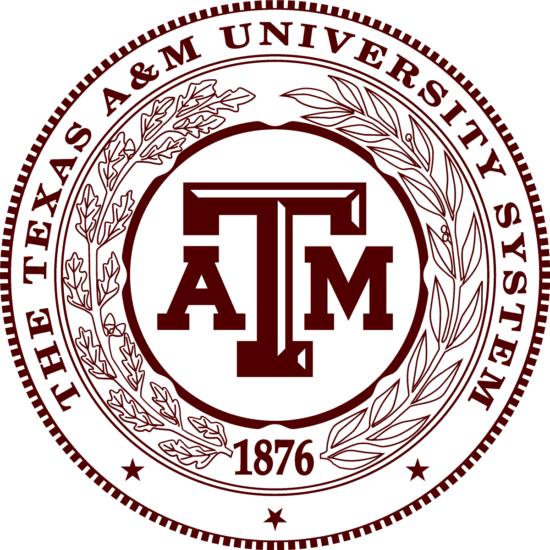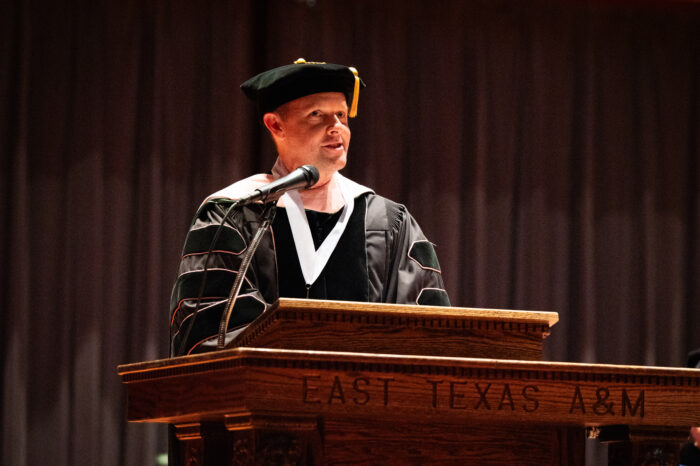A&M System Chancellor releases memo regarding Coronavirus information

Texas A&M University System Chancellor John Sharp released a memo this month regarding up-to-date information on the Coronavirus.
The memo urged system institutions to provide up-to-date information regarding the spread of Coronavirus (COVID-19)
“Like all of you, I am monitoring the Coronavirus (COCID-19) outbreak in China and its spread across the globe,” Sharp said in the memo. “Up to now, there have been relatively few cases in the United States. At this time Texas is considered at low risk. We all hope it stays that way.”
He continued: “Nevertheless, our students and their parents, our faculty and our staff are understandably concerned…Everyone associated with the Texas A&M System needs to have easy access to the latest and most accurate information about the COVID-19.”
Sharp asked each system university to post links to the Texas Department of State Health Services webpage regarding the Coronavirus. The latest information on the outbreak can be found at https://www.dshs.texas.gov/covid-19-coronavirus-disease/texas-covid-19-surveillance.
The full memo from Chancellor Sharp can be viewed below.
ADDITIONAL INFORMATION
The Texas A&M University System also shared the following information about COVID-19. The information is sourced from the Texas Health and Human Services – COVID-19 website, the World Health Organization (WHO), and experts from the Texas A&M University System.
Last modified: March 3, 1 p.m.
What is COVID-19 and how does it spread?
COVID-19 is an infectious disease caused by the most recently discovered coronavirus, which can cause illness in humans and animals. Those who have become sick are reported to develop cough, fever, breathing difficulties and tiredness. In severe cases, organ failure has been reported.
- What experts know about COVID-19, a relatively new virus, is largely based on what is known about similar coronaviruses. The World Health Organization named this illness “coronavirus disease 2019” (abbreviated COVID-19).
- Person-to-person: The CDC says that the virus is spread mainly from person-to-person, which means those who are in close contact with one another, and/or through respiratory droplets produced when an infected person coughs or sneezes. Those droplets can land in the mouths or noses of people who are nearby and possibly be inhaled into the lungs.
- CDC officials say that it is possible a person can contract COVID-19 by touching a surface or an object that has the virus on it, and then touching their own mouth, nose or eyes, but they said this is not thought to be the main way the virus spreads.
Is there a vaccine, drug or treatment for COVID-19?
Medical experts across the globe are rushing to find a cure. However, there is not one at this time. The disease is viral, which means antibiotics will not help; the antiviral drugs that work against the flu do not work against coronavirus. Those with a weak immune system and those who already are sick are urged to be especially cautious.
How can I tell if I have the coronavirus?
The CDC says people are thought to be most contagious when they are most symptomatic – the sickest. Still, it is possible to spread the disease before showing symptoms, so a person can feel fine and still have it, just as with other viruses. Such cases have been reported, but are not thought to be the main way it spreads.
What should I do if I have a cough?
The WHO recommends staying three feet away from a person who is sick. The main way this disease spreads is through respiratory droplets expelled by someone who is coughing. The risk of catching it from someone with no symptoms at all is very low.
How can I protect myself from the virus?
Stay educated on the disease by reading the CDC website. Most people who become infected experience a mild illness and recover, but it can be more severe for others.
Take care of yourself by doing the following:
- Stay home if you don't feel well. If you have a fever, cough and difficulty breathing, seek medical attention and call ahead to the medical office.
- Regularly and thoroughly wash your hands with soap and water for 20 seconds, or use an alcohol-based hand rub. This helps kill viruses that might be on your hand.
- Stay at least three feet away from someone who is coughing or sneezing.
- Avoid touching your eyes, nose and mouth. Once contaminated, hands can transfer the virus to your eyes, nose or mouth.
- Follow good respiratory hygiene, which means covering your mouth and nose with your bent elbow or a tissue when you cough or sneeze. Dispose of the tissue immediately.
Should I wear a mask?
The WHO suggests people with no respiratory symptoms, such as a cough, do not need to wear a medical mask, but those who do have symptoms of COVID-19 and those caring for individuals who have symptoms (coughing, sneezing) should wear a mask.
What is the risk for developing the coronavirus in Texas?
The Texas Health and Human Services said the risk for all Texans, including those in Commerce, Texas, remains low. Continue to avoid close contact with people who are sick; avoid touching your eyes, nose and mouth; stay home when you are sick; cover your cough or sneeze with a tissue, then throw the tissue in the trash; avoid shaking hands; clean and disinfect frequently touched objects and surfaces using a regular household cleaning spray or wipe.
Travel restrictions due to widespread ongoing transmission of COVID-19
Restrictions and precautions recommended by the CDC are based on a scale from 1 to 4, with 1 meaning exercise normal precautions and 4 meaning do not travel to that location:
Level 3: Avoid all nonessential travel to the following destinations:
· China
· Iran
· South Korea
· Italy
Level 2: Older adults or those who have chronic medical conditions consider
postponing travel to the following destinations:
· Japan
Level 1: Practice usual precautions at the following destination:
· Hong Kong
What countries are at-risk with COVID-19?
The CDC has established geographic risk-stratification criteria for the purpose of issuing travel health notices for countries with COVID-19 transmission and guiding public health management decisions for people with potential travel-related exposures to COVID-19. A number of factors inform the geographic risk stratification, including size, geographic distribution and epidemiology of the outbreak.
For up-to-date health notices, visit the CDC and U.S. State Department websites.
Returning From Travel
If you were in a country with a COVID-19 outbreak and have felt sick with fever, a cough or difficulty breathing, within 14 days after you left, you should do the following:
- Seek medical advice – Call ahead before you go to a doctor's office or emergency room. Tell them about your recent travel and your symptoms.
- Avoid contact with others.
- Do not travel on public transportation while sick.
- Cover your mouth and nose with a tissue or your sleeve (not your hands) when coughing or sneezing.
- Wash hands often with soap and water for at least 20 seconds to avoid spreading the virus to others.
- Wash your hands with soap and water immediately after coughing, sneezing or blowing your nose.
- If soap and water are not readily available, you can use an alcohol-based hand sanitizer that contains 60 percent to 95 percent alcohol. Always wash hands with soap and water if hands are visibly dirty.
- Read about the difference between isolation and quarantine.
Behaviors of Bias
Be aware that concern around this emerging issue can lead to stigma and bias.
- Coronavirus doesn't recognize race, nationality or ethnicity.
- Wearing a medical mask does not mean that a person is ill.
Where should I go to get accurate information on COVID-19?
Keep checking this page (https://www.tamuc.edu/am-system-chancellor-releases-memo-regarding-coronavirus-information/), as well as the following:
More Homepage
View All Homepage
Newest Regents Professor Honored at Annual Convocation
East Texas A&M University Regents Professor of Music Dr. Brian Zator was officially recognized for his outstanding achievement at the university's annual Spring convocation.

KETR Celebrates 50 Years of Service to Northeast Texas
88.9 KETR is celebrating a major milestone this week: 50 years on the air. The National Public Radio (NPR) station went live on April 7, 1975, broadcasting from the Journalism Building at East Texas A&M University.

East Texas A&M Art Students Showcase Work in Juried Student Art Exhibition
The East Texas A&M University Department of Art is pleased to announce the winners of the 2025 Annual Juried Student Art Exhibition.


